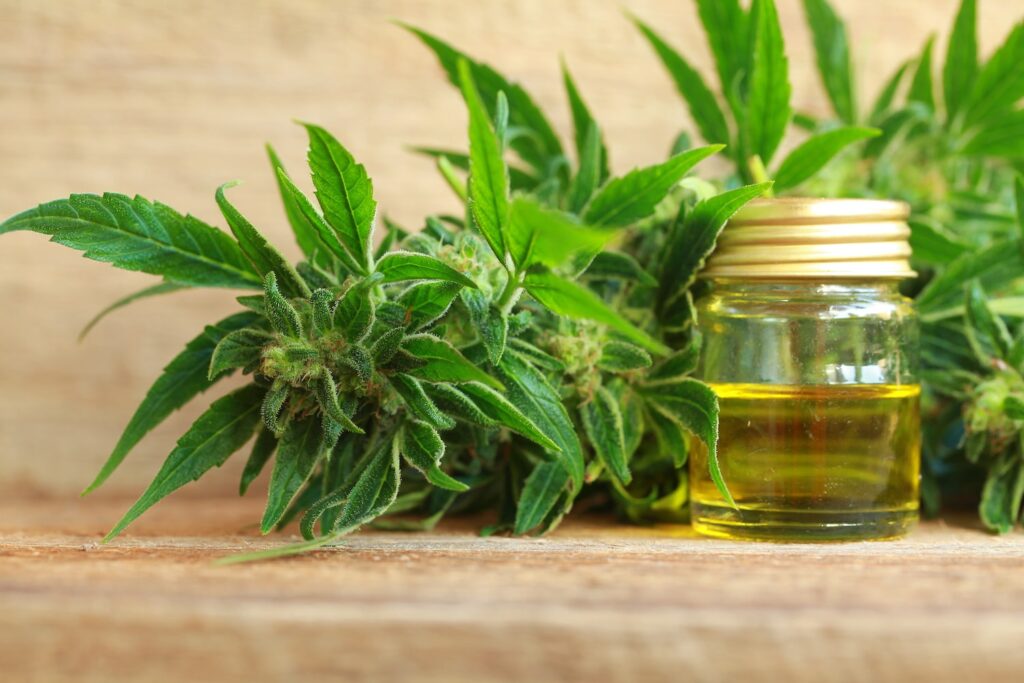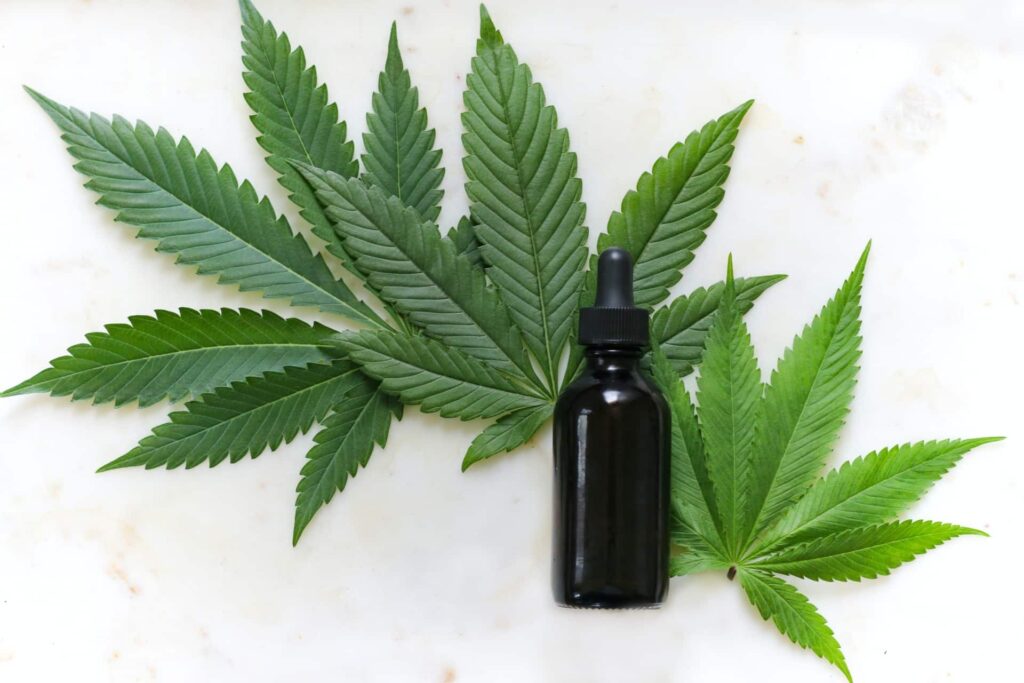Introduction
In recent years, there has been growing interest in the potential therapeutic benefits of cannabidiol, or CBD, a compound derived from the cannabis plant. While often associated with recreational marijuana use, CBD offers a different promise – one of relief and healing. Among the many potential uses for CBD, its ability to alleviate symptoms of anxiety and depression has garnered significant attention. In this article, we will explore how CBD can help with anxiety and depression, shedding light on the science behind it and the considerations for those seeking relief.

Understanding Anxiety and Depression
Before delving into how CBD can help, it is essential to understand the nature of anxiety and depression. These are two common mental health disorders that affect millions of people worldwide.
Anxiety is characterized by excessive worry, fear, and nervousness. It can manifest physically with symptoms like rapid heartbeat, sweating, trembling, and restlessness. On the other hand, depression is marked by persistent feelings of sadness, hopelessness, and a lack of interest or pleasure in activities. Both conditions can significantly impact one’s quality of life and overall well-being.
Traditional Treatment Approaches
Conventionally, anxiety and depression are treated with therapies such as cognitive-behavioral therapy (CBT) and medications like selective serotonin reuptake inhibitors (SSRIs) and benzodiazepines. While these treatments have proven effective for many individuals, they come with potential side effects and may not work for everyone.

This is where CBD comes into the picture, offering a more natural alternative that may complement traditional approaches or serve as an option for those who prefer a holistic approach to managing their mental health.
How CBD Works
CBD interacts with the endocannabinoid system (ECS), a complex network of receptors and neurotransmitters found throughout the body. The ECS plays a crucial role in regulating various physiological processes, including mood, stress response, and inflammation.
CBD does not produce the psychoactive effects associated with its cousin, tetrahydrocannabinol (THC), which is responsible for the “high” experienced with marijuana use. Instead, CBD exerts its influence on the ECS by indirectly modulating the activity of its receptors, particularly the CB1 and CB2 receptors.
The potential benefits of CBD for anxiety and depression stem from its ability to influence the following factors:
Neurotransmitter Regulation: CBD may impact the levels of neurotransmitters like serotonin, which plays a key role in regulating mood. Low serotonin levels are often associated with depression, and medications like SSRIs work by increasing its availability in the brain.
Stress Response: CBD has been shown to reduce the body’s stress response by interacting with the ECS. By modulating the release of stress hormones like cortisol, it may help individuals better manage stressful situations.
Inflammation: Chronic inflammation has been linked to both anxiety and depression. CBD’s anti-inflammatory properties may help alleviate some of the underlying causes of these conditions.
Sleep: Sleep disturbances are common in anxiety and depression. CBD has shown promise in improving sleep quality, which can have a positive impact on mood.
Evidence Supporting CBD for Anxiety and Depression
While the research on CBD’s effectiveness for anxiety and depression is still in its early stages, several studies and anecdotal reports suggest that it may be a valuable treatment option.
Anxiety: A review of existing studies published in the journal Neurotherapeutics in 2015 found that CBD showed potential as an effective treatment for multiple anxiety disorders, including generalized anxiety disorder (GAD), social anxiety disorder (SAD), and post-traumatic stress disorder (PTSD). However, more research is needed to confirm these findings.
Depression: Research on CBD’s effects on depression is less extensive but still promising. A 2020 study in the journal Molecular Neurobiology suggested that CBD may have antidepressant effects by influencing the ECS and regulating serotonin levels.
Sleep: CBD’s potential to improve sleep quality can indirectly benefit individuals with anxiety and depression. A 2019 study published in The Permanente Journal found that CBD improved sleep scores for participants with anxiety and sleep issues.
Practical Considerations for Using CBD
Before incorporating CBD into your anxiety or depression management plan, it’s crucial to consider several practical factors:
Dosage: There is no one-size-fits-all dosage for CBD, as it can vary based on factors like body weight, metabolism, and the severity of symptoms. It’s advisable to start with a low dose and gradually increase it until you find the right balance.
Quality: The quality of CBD products can vary significantly. Look for products that have been third-party tested for purity and potency. It’s also essential to choose a reputable supplier.
Interaction with Medications: If you are currently taking medications for anxiety or depression, consult with a healthcare professional before adding CBD to your regimen. CBD can interact with certain medications, potentially causing adverse effects.
Full-Spectrum vs. Isolate: CBD products come in various forms, including full-spectrum and CBD isolate. Full-spectrum products contain a range of cannabinoids, including trace amounts of THC, while isolates contain pure CBD. Some individuals may prefer one type over the other based on their needs and sensitivities.
Consistency: CBD may not provide immediate relief, and its effects can be cumulative. Consistency is key when using CBD for mental health, so stick to a routine and give it time to work.
The Endocannabinoid System: A Brief Overview
Before we dive deeper into how CBD works, let’s take a closer look at the endocannabinoid system (ECS). Understanding this system is crucial for comprehending how CBD affects anxiety and depression.
The Role of ECS in Mood Regulation
The ECS plays a central role in maintaining homeostasis in the body. It consists of receptors, endocannabinoids produced by the body, and enzymes that regulate the endocannabinoids. This system is intricately involved in mood regulation and can be modulated by external cannabinoids like CBD.
CBD and Neurotransmitter Regulation
One of the primary ways CBD may help with anxiety and depression is by influencing neurotransmitter levels in the brain.
Serotonin: The Happiness Molecule
Serotonin is a neurotransmitter associated with feelings of well-being and happiness. Low serotonin levels are often linked to depression and anxiety disorders. CBD’s impact on serotonin receptors in the brain may help alleviate symptoms of these conditions.
GABA: The Relaxation Neurotransmitter
Gamma-aminobutyric acid (GABA) is another crucial neurotransmitter that CBD may influence. GABA is responsible for inhibiting brain activity, promoting relaxation, and reducing anxiety. By enhancing GABA signaling, CBD may have an anxiolytic (anxiety-reducing) effect.
Stress Response and CBD
Chronic stress can be a major trigger for both anxiety and depression. CBD’s ability to modulate the body’s stress response is another key mechanism through which it may offer relief.
Cortisol Regulation
Cortisol is a hormone released in response to stress. Prolonged high levels of cortisol can contribute to anxiety and depression. CBD may help regulate cortisol levels, reducing the impact of chronic stress on mental health.
The “Fight or Flight” Response
CBD’s calming effect on the nervous system can counteract the body’s “fight or flight” response, which is often hyperactive in individuals with anxiety disorders. By promoting relaxation, CBD may reduce the frequency and intensity of panic attacks.
Conclusion
CBD has emerged as a potential natural remedy for anxiety and depression, offering an alternative or complementary option to traditional treatments. While research is ongoing, the existing evidence suggests that CBD may have a positive impact on mood, stress response, and sleep quality.
However, it’s essential to approach CBD use with caution, consulting with a healthcare professional and choosing high-quality products from reputable sources. CBD is not a one-size-fits-all solution, and its effectiveness can vary from person to person. It is just one tool among many in the toolbox for managing anxiety and depression, and individuals should consider it as part of a holistic approach to mental health and well-being.

